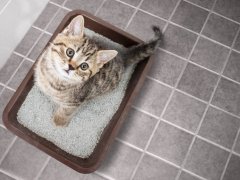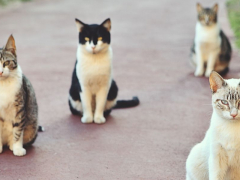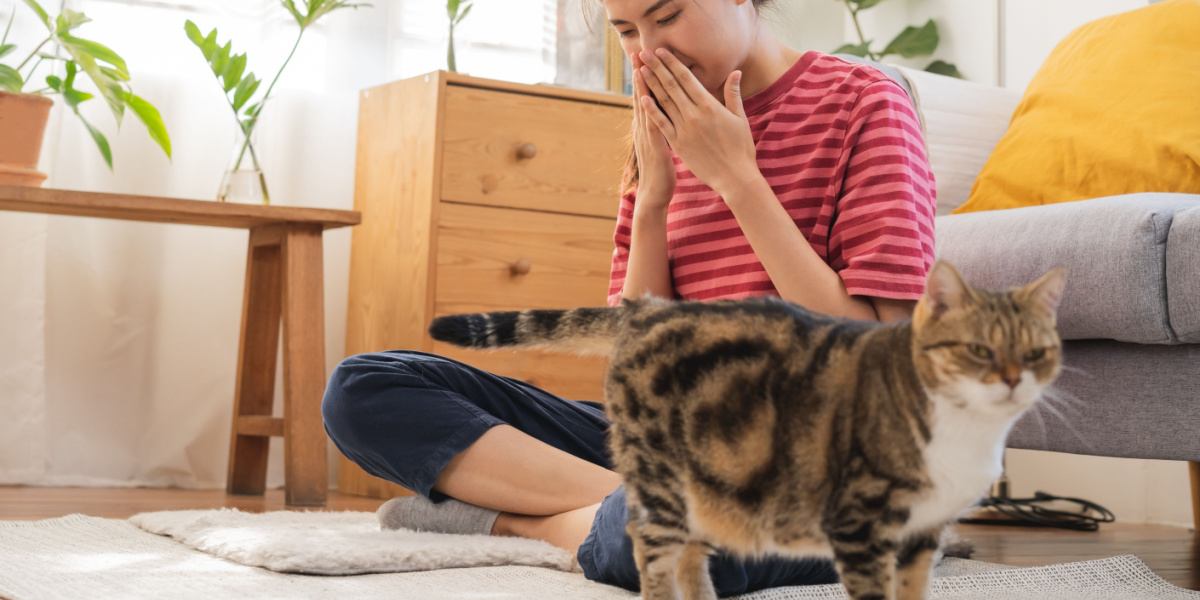
Have you recently noticed a fishy smell coming from your cat? You might be wondering why they smell so bad, especially since cats take such great pride in keeping themselves clean. If this unpleasant odor has caught your attention, read on to find out more about what could be causing this and what you can do.
Various medical conditions can make your cat smell fishy, including anal gland problems, urinary tract infections, skin infections, ear infections, and dental disease,. If you notice an unpleasant, fishy smell coming from your cat, try and find out where it's coming from so you can look for other clues. If you have any concerns about your cat’s odor, schedule a checkup with your veterinarian.Key Takeaways
1. Anal Gland Problems
A cat’s anal glands, also known as anal sacs, are found on either side of the anus at around the 5 o’clock and 7 o’clock positions. They produce pungent, foul-smelling fluid secretions that act as distinctive scent markers. When your cat passes a solid, well-formed poo, this puts pressure on the anal glands and releases the secretions through a duct into the anus.
Cats can empty their anal glands when they are scared or stressed, so you might notice a fishy smell about them. If this happens occasionally, it isn’t caused for concern. However, you should be aware that cats can develop problems with their anal glands, although this occurs less commonly in cats compared to dogs.
Anal glands can become “impacted,” when the sacs don’t empty properly, resulting in a buildup of secretions and inflammation. If this is left untreated, it can progress to an anal gland infection. Painful abscesses can then develop from this. Symptoms to look out for include:
- Fishy, pungent odor
- Rubbing the rear end along the ground or “scooting”
- Increased licking of the rear end
- Red, inflamed skin around the anus
2. Urinary Tract Infection
Cats can get urinary tract infections (UTIs), which give their urine a noticeably foul odor. UTIs can also cause incontinence. Dribbles of leaking urine might remain in the fur around the rear end, resulting in a pungent smell that lingers on your cat. Other signs of a UTI include:
- Straining to pee
- Blood in the pee (hematuria)
- Vocalizing while peeing
If you think your cat is having issues peeing, take them for a checkup with your veterinarian.
3. Dental Disease
A lot of people seem to think it is normal for a cat to have bad breath (halitosis). However, a healthy cat’s mouth shouldn’t give off an unpleasant smell. If you’ve caught a whiff of your cat’s breath and recoiled, then your cat likely has dental disease. Dental disease is one of the most common problems that we see in cats.
A study by the American Veterinary Dental Society found that 70% of cats develop periodontal disease by 3 years of age. Plaque and tartar accumulate on the teeth, with bacterial growth and gingivitis (gum inflammation). This eventually leads to tooth loss. Tooth root abscesses can also form.
Signs of dental pain, along with bad breath, include:
- Difficulty chewing/favoring one side to chew
- Dropping food while eating
- Drooling
- Pawing at the face
If your cat has dental disease, your veterinarian will recommend booking them in for a dental cleaning, which involves carefully scaling and polishing all the teeth and extracting any that need to be removed.
To prevent dental disease, a routine dental care regime at home is required. Daily toothbrushing with feline-specific toothpaste is the best way to reduce plaque buildup. It can be difficult to introduce this to older cats so it’s always best to start doing this when they are young. Other options include using water additives and special dental diets.
Your veterinarian will check your cat’s teeth during their annual wellness exam. They will be happy to answer any questions you might have about keeping your cat’s teeth in good condition.
4. Feline Chronic Gingivostomatitis
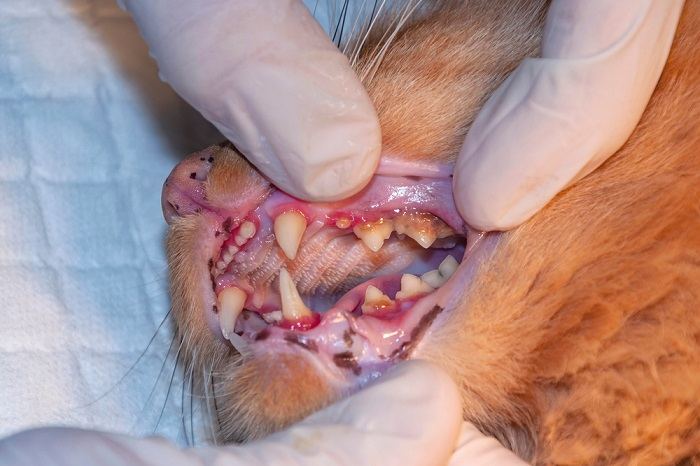
Feline chronic gingivostomatitis can cause bad breath among other symptoms.
Feline chronic gingivostomatitis is a severe inflammatory disease, which results in ulcers on the lips, gums, tongue, and throat. As the condition is so painful, cats often have a decreased appetite or will refuse to eat.
It is thought to be an autoimmune disorder, whereby the cat’s immune system overreacts to low levels of bacteria in the mouth. Viruses, like feline leukemia virus (FeLV) and feline immunodeficiency virus (FIV), and systemic diseases, like diabetes and chronic kidney disease, can also contribute to its development.
5. Grooming Issues
Cats spend many of their waking hours grooming and keeping themselves clean. If this grooming is reduced, then they might develop a bad smell about them. Overweight cats often struggle to groom certain areas of themselves.
It is also difficult for cats with arthritis to reach around, especially near the rear end, due to pain and stiffness. Your veterinarian can advise if your cat is overweight or if you suspect your cat has arthritis. Long-haired cats are also prone to becoming matted and will require regular brushing.
6. Wounds and Infections
If your cat has been in a fight with another cat, keep an eye out for any swelling and discomfort. Cats’ mouths are full of bacteria and nasty abscesses can form from cat bites. These can burst, releasing blood and pus along with a very unpleasant smell. It’s important to bring your cat for a checkup with your veterinarian, who will prescribe a course of anti-inflammatories and antibiotics.
Cats can also get general skin infections, which result in a smelly odor. Skin infections in cats are usually due to an underlying condition, such as allergies and parasite infestation. Cats will be very itchy and irritated. You might see raw and inflamed skin, hair loss, scabs, and skin flakes in the coat.
7. Ear Infections
If your cat has very stinky ears, they could have an ear infection. Look out for excess waxy discharge, increased ear scratching, and head shaking. Ear mites are the most common cause of ear infections in cats. Other causes include:
- Allergies
- Foreign bodies (e.g., grass seeds)
- Growths in the ears (e.g., tumors, polyps)
- Bacterial or yeast overgrowth
Your veterinarian can examine your cat’s ear canals with an otoscope. They might also take samples to check for mites, bacteria, and yeast under the microscope, before prescribing treatment.
Final Thoughts
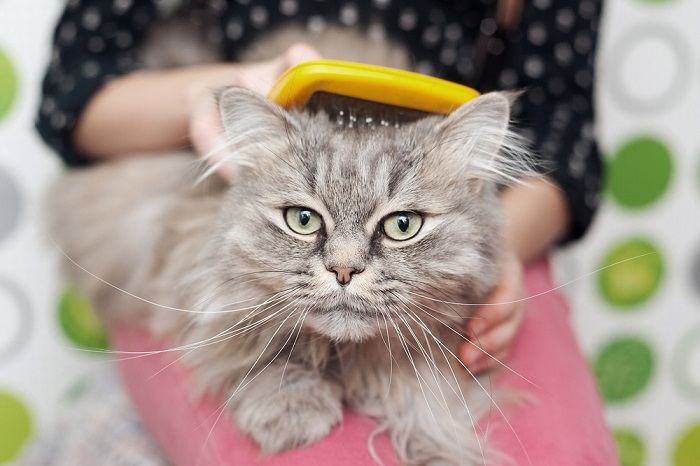
It’s unusual for cats to smell bad, so talk to your vet if you can’t figure out what’s causing the fishy smell.
Cats are indeed very clean animals and spend much of their waking hours grooming themselves. If you notice an unpleasant, fishy smell coming from your cat, try and find out where exactly it is coming from so that you know what other signs to look for.
Various medical conditions, such as anal gland problems, urinary tract infections, and dental disease, can make your cat smell. If you have any concerns about your cat’s odor, contact your veterinarian so that they can give your cat a health check.
Also Read: 10 Most Dangerous Diseases In Cats
Frequently Asked Questions
What do I do if my cat smells like fish?
If your cat eats a fish-flavored diet, then they might have somewhat fishy breath after they have eaten. However, if the fishy smell about your cat is very strong or persists, then it’s important to pay more attention.
Try and pinpoint where the smell is coming from. If your cat has persistent fishy breath, dental disease is likely. A fishy odor around their rear end is likely caused by their anal glands. A general fishy smell over the whole body indicates skin issues. Contact your veterinarian for a checkup so that the necessary treatment can be given.
Do cats need to have their anal glands expressed?
Most cats usually do not need to have their anal glands manually expressed. However, some cats might need some help, if their anal glands become full and can’t empty themselves.
If you have noticed a fishy smell from your cat and they have been scooting (dragging their bum along the ground) or licking their rear end more, bring them to your veterinarian. They will be able to check the anal glands and make sure there is no infection.
Can I express my cat’s anal glands at home?
Expressing your cat’s anal glands at home is possible but can be difficult. Cats, understandably, do not appreciate having the procedure done so you will need someone to help restrain them. When expressing at home, it is best to use the external method. Keep in mind that the anal glands are around the 5 o’clock and 7 o’clock positions.
Using your thumb and index finger, press on the glands and push upwards. Applying gentle pressure should release some secretions. The internal method whereby a finger is inserted into the anus is best left to veterinary professionals.
-
Crossley, D., & Smithson, A. (2022). Gingivitis and stomatitis. Vetlexicon. Retrieved December 27, 2022, from https://www.vetlexicon.com/treat/felis/diseases/gingivitis-and-stomatitis
-
Marsella, R., Mason, I., Scarff, D., & Godfrey, D. (2022). Otitis externa. Vetlexicon. Retrieved December 27, 2022, from https://www.vetlexicon.com/treat/felis/diseases/otitis-externa
-
Thompson, M., & Oxford, M. (2022). Periodontal disease. Vetleicon. Retrieved December 27, 2022, from https://www.vetlexicon.com/treat/felis/diseases/periodontal-disease



